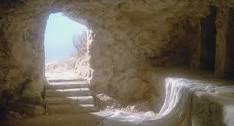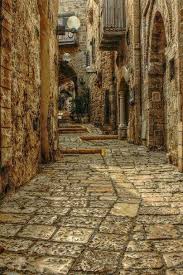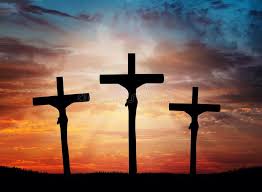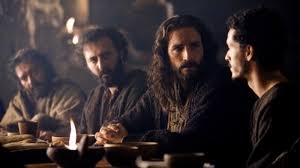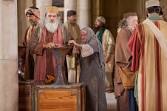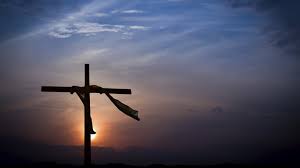Background: Matthew 18:21-35, I Corinthians 13:5, Ephesians 4:31-32; Luke 6:27-28; Isaiah 43:25
The story may be apocryphal, which means regardless of how much I want it to be true, it probably isn’t. Still, no one wants to let a good story interfere with a great illustration of spiritual truth.
Renaissance man, Leonardo da Vinci painted The Last Supper as a fresco for the Dominican monastery Santa Maria delle Grazie in Milan between 1495 and 1498. It depicts that intriguing moment during that last meal in the upper room when Jesus tells the disciples that one of them will betray him.
Da Vinci felt that “notions of the mind” could be seen in a man’s posture, mannerisms and expressions. Therefore, the expressions on each face of the disciples reveal da Vinci’s interpretation of how each disciple might have reacted based upon their personalities.
The story goes that at the time the artist painted The Last Supper, a bitter feud erupted between da Vinci and a fellow painter. Da Vinci despised the man.
When da Vinci painted the face of Judas Iscariot at the table with Jesus, he used the face of this enemy so that it would be present for ages as the man who betrayed Jesus.
As he worked on the faces of the other disciples, he tried time and time again to paint the face of Jesus, but nothing he depicted felt right.
Over time he realized that his hatred for the other painter kept him from finishing the face of Jesus. Da Vinci sought out and made peace with this fellow painter, erasing his features from the fresco and repainting the face of Judas. Only then was he able to paint the face of Jesus and complete his masterpiece.
Whether the story is true or false, it begs the question. Is our hatred for another, for what they have done to hurt us, keeping us from seeing clearly the face of Jesus? Are our ill feelings for another obstructing our relationship with Christ?
To their credit, the disciples who followed Jesus listened. They had difficulty at times understanding, but they heard what he said. They asked questions. They learned…sometimes the hard way.
In the days immediately following the transfiguration experience, Jesus continued teaching the disciples things they would need to know after his death and resurrection. Given the hostility he knew they would face when he was gone, Jesus spent a lot of time talking about forgiveness.
The Pharisees wrote it down, buried in the numerous laws they added to Jewish life. Their laws told them that one must extend forgiveness to another person three times. Beyond that, if the person offended you a fourth time, your personal grace obligation disappeared. You could simply wipe the dust off his sandals and cut that person out of your life. You had done your part.
At one point, Peter, in an effort to impress Jesus with his gracious spirit, asked and answered the question he was sure would bring him praise.
“Lord, how often should I forgive my brother or sister who sins against me? Up to seven times?”
Peter’s thought seemed to be, “If I just double what the law requires and add one for good measure, I’ll be seen as magnanimous and gracious.”
Jesus answered, “I tell you, not seven times, but seven times seventy.”
Jesus’ thought seemed to be, “How can you not extend forgiveness to anyone who offends you no matter how many times they hurt you since God forgives your every sin?”
Thus began another great parable about kingdom living which taught that forgiveness ought to be a reflection of the mercy God extends to us each and every day.
The story Jesus tells Peter and the other disciples talks about the man who owed his master an enormous debt he could not repay. Touched by the man’s appeal for mercy, the master forgave the debt and sent him on his way.
Later, that forgiven man demanded payment from a poor man who could not repay his debt to him, though the amount he owed was small. Despite the poor man’s plea for mercy, the man to whom the debt was owed, the same man whom the master had forgiven so much, cast the poor man and his family in prison.
The message to the disciples was clear. The well of God’s forgiveness never runs dry for those who truly repent. He asks the same from us. Forgiveness ought to be a part of who we are…infinitely extended as a natural part of our relationship with a loving and merciful father.
Let’s talk about what that means. When someone hurts me, my first reaction is to check my contract with God to find a loophole, any loophole, that allows me to withhold my forgiveness. That’s kind of what Peter was asking. “Surely, there are things I don’t have to forgive. Surely, there is a limit.”
As humans, we can do some despicable things to one another, making the resentment we feel run deep. We might say the words of forgiveness. We might act the part. But we let the bitterness fester and burn. It takes time to process the hurt.
Forgiveness is too easy to say. Much harder to do. Bitterness keeps us from being able to forgive. It is a tap root that burrows deeply into the fertile soil of anger that we’ve trapped inside. We justify our bitterness with frightening ease. “Since I’ve been hurt, I have a right to feel this way. I have a right to retaliate. I have a right to push this person aside, unworthy of my grace and love.”
That beautiful passage in I Corinthians 13:5 tells us that “love keeps no record of wrongs.” Our experience tells us that bitterness keeps a ledger and conceals it in a combination safe behind the haloed painting of Jesus hanging on our wall in our bedroom. We just don’t want to give up our anger.
While the world might agree with us that the hurt we’ve endured entitles us to a certain amount of anger, rage, resentment, and bitterness, we know in our hearts that the longer we harbor resentment, the more it hurts us.
This is not the way of Christ. Love and forgiveness are the only ways to get rid of bitterness that has taken root in our hearts. If we are to live as Christ lived, forgiveness must be our way as well. Paul laid it out there for the church at Ephesus.
“Get rid of all bitterness, rage and anger, brawling and slander, along with every form of malice. Be kind and compassionate to one another, forgiving each other, just as in Christ God forgave you.” Ephesians 4:31-32
Only God’s power and the work of his spirit within us can bring us to a place of being ready and willing to forgive.
Jesus was skilled at forgiveness…It was a God thing. Second nature. A part of who he was. Hanging from a brutal cross and bearing our sins, he cried, “Father, forgive them for they don’t know what they’re doing.”
I always thought this prayer was for the Jews who convicted him and the soldiers to crucified him. I’m convinced now that it was his appeal on my behalf…for my future sins. His willingness to forgive my sins from the cross compels me to forgive others.
So how do we get rid of the bitterness that stands as an obstacle that keeps us from forgiving those who hurt us?
Jesus told his disciples, “You have heard that it was said, ‘Love your neighbor and hate your enemy.’ But I tell you: Love your enemies and pray for those who persecute you.” Luke 6:27-28
There it is — love and pray for your enemies! Love them as God loves them. Pray for those who persecute you. Hurt you. Disrespect you. Disagree with you. Irritate you. Offend you.
Here’s what I’ve learned through the years. My prayers for others may or may not change them, but they always change me…which may be the whole point of prayer in the first place.
There’s one more thing. Several passages in the Bible indicate that God forgives and forgets our sins.
“I, even I, am he who blots out your transgressions, for my own sake, and remembers your sins no more.” Isaiah 43:25
God’s “not remembering” is not what we usually think of as forgetting. God is omniscient. He knows everything. He forgets nothing. “Not remembering” is the equivalent of not acting upon them. He chooses to overlook our sin because the price of that sin has already been paid.
You see, forgiveness is a choice. We may never actually forget the action. We can, through the grace of God, choose to put the painful memories aside. To choose to overlook it. Forgiving as God forgives keeps us from dwelling on the past.
I’ve erased my painting of Judas so many times the plaster is worn out. I don’t know who’s face you’re painting on your forgiveness fresco. I do know that you’ll never clearly see the face of Jesus until you set the bitterness aside and forgive the one who hurt you.
“Seven times seventy.”



